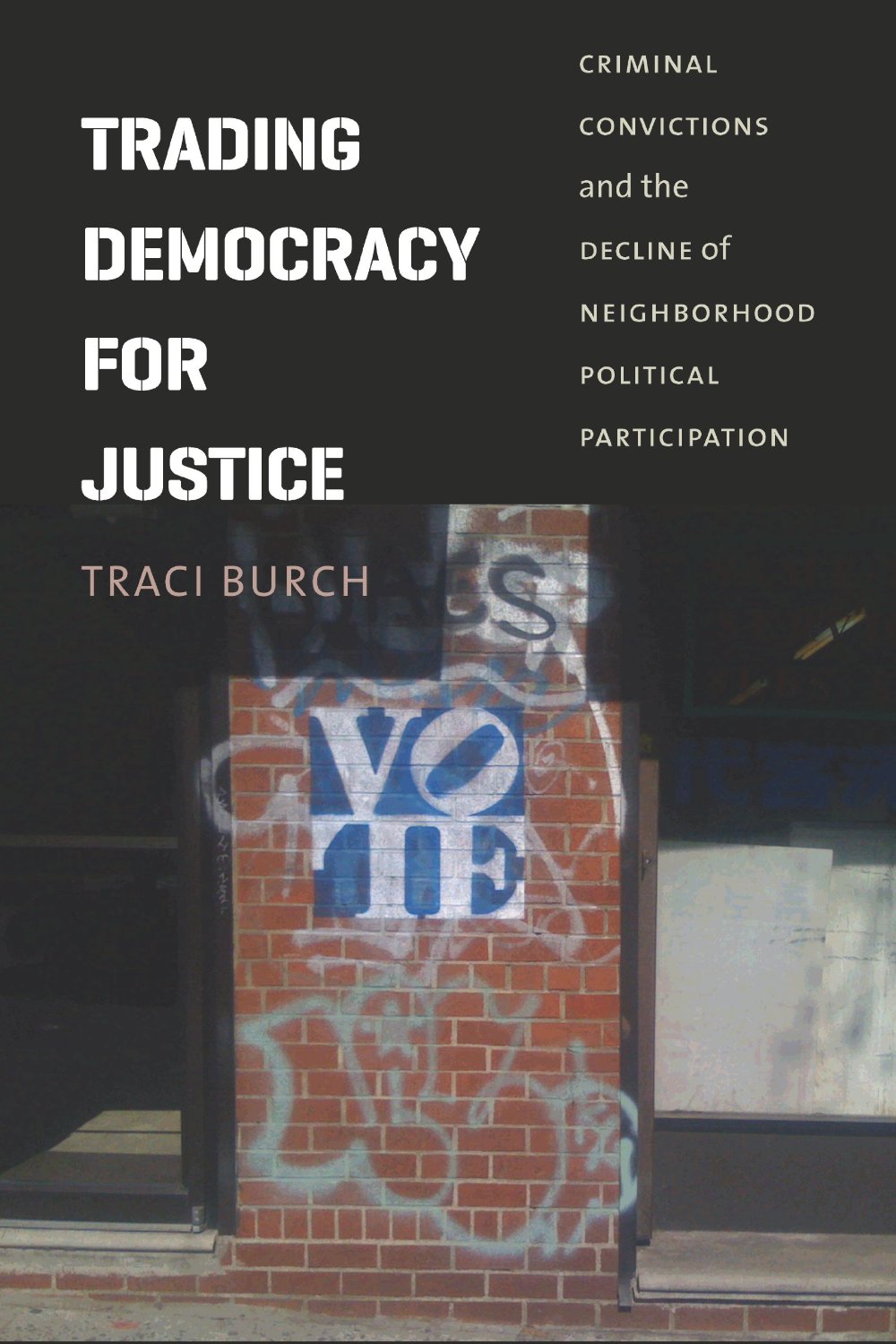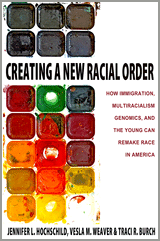
By Traci Burch
Publisher: The University of Chicago Press
Release date: August 2013
For Trading Democracy for Justice, Traci Burch has drawn on data from neighborhoods with imprisonment rates up to fourteen times the national average to chart demographic features that include information about imprisonment, probation, and parole, as well as voter turnout and volunteerism. She presents powerful evidence that living in a high-imprisonment neighborhood significantly decreases political participation. Similarly, people living in these neighborhoods are less likely to engage with their communities through volunteer work. What results is the demobilization of entire neighborhoods and the creation of vast inequalities—even among those not directly affected by the criminal justice system.
The first book to demonstrate the ways in which the institutional effects of imprisonment undermine already disadvantaged communities, Trading Democracy for Justice speaks to issues at the heart of democracy.

By Jennifer Hocshchild, Vesla Weaver, and Traci Burch
Publisher: Princeton University Press
Release date: February 2012
The authors outline the components that make up a racial order and examine the specific mechanisms influencing group dynamics in the United States: immigration, multiracialism, genomic science, and generational change. Cumulatively, these mechanisms increase heterogeneity within each racial or ethnic group, and decrease the distance separating groups from each other. The authors show that individuals are moving across group boundaries, that genomic science is challenging the whole concept of race, and that economic variation within groups is increasing. Above all, young adults understand and practice race differently from their elders: their formative memories are 9/11, Hurricane Katrina, and Obama’s election–not civil rights marches, riots, or the early stages of immigration. Blockages could stymie or distort these changes, however, so the authors point to essential policy and political choices.
Portraying a vision, not of a postracial America, but of a different racial America, Creating a New Racial Order examines how the structures of race and ethnicity are altering a nation.
